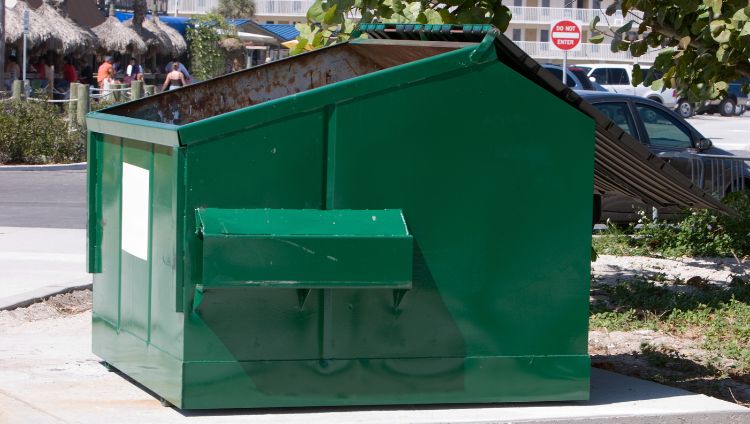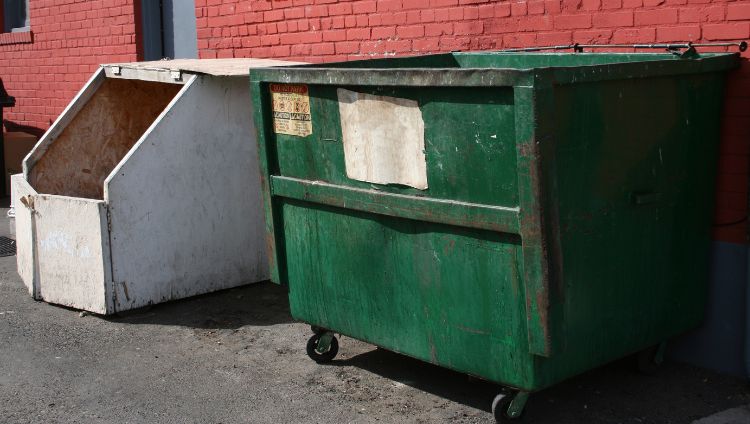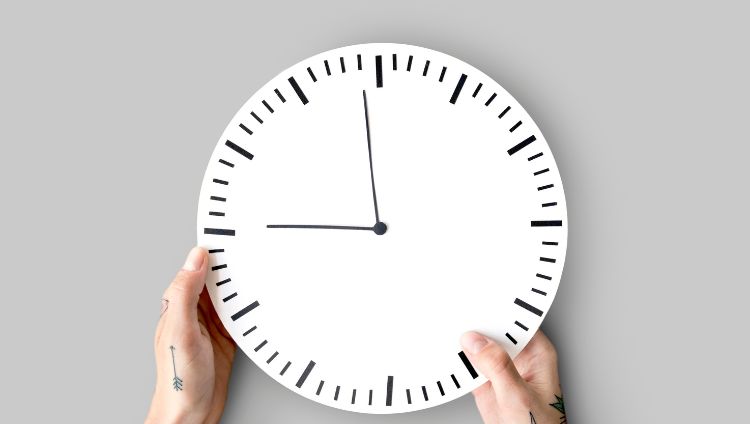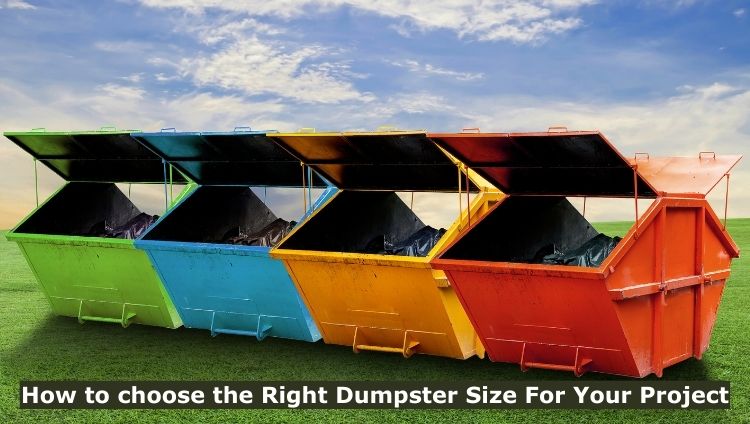Renting a dumpster is a wise decision for projects that generate significant waste, including home renovations, construction work, or large-scale cleanups
Dumpsters offer a convenient and effective solution for disposing of debris while maintaining a clean work area.
However, it is essential to carefully select the appropriate dumpster size to avoid unnecessary costs and ensure a seamless disposal process.
This comprehensive guide will take you through the necessary steps to determine how to choose the right dumpster size for your project, which will ultimately save you valuable time, money, and effort.
Evaluate the Scope of Your Project
When you’re picking out the right dumpster, it’s super important to think about the size and type of your project. Consider what kind of stuff you’ll be tossing out and how much space it’s going to take up. Your needs can change a lot depending on whether you’re sprucing up your cozy home or taking on a massive building project.
A clear understanding of the project’s scope forms the basis for selecting the correct dumpster size.
For more information on managing waste during large projects, see How to Reduce Waste in Your Daily Life.

Explore the Range of Dumpster Sizes Available
Dumpsters are available in a variety of sizes to meet the specific needs of different projects.
The most commonly used dumpster sizes include 10-yard, 20-yard, 30-yard, and 40-yard options. Let’s delve into a brief overview of each size:
10-Yard Dumpster
The 10-yard dumpster is the smallest option, suitable for minor projects like small home cleanouts or debris removal from a single room. Its compact size makes it ideal for locations with limited space.
20-Yard Dumpster
The 20-yard dumpster is a versatile choice, fitting well with medium-sized projects such as kitchen or bathroom renovations. It can handle a more substantial volume of waste.
30-Yard Dumpster
The 30-yard dumpster is better suited for larger projects like multi-room renovations or medium-sized construction projects. It provides ample space for sizeable amounts of debris.
40-Yard Dumpster
The 40-yard dumpster is the largest option, reserved for major construction projects, commercial cleanouts, or extensive renovations. It offers the highest capacity for waste disposal.
Specialized Dumpsters
Certain projects may require specialized dumpsters, such as those designed for hazardous materials or recycling-specific waste.
Factors to Consider to Choose the Right Dumpster Size
Estimating the Amount of Waste
Choosing the right dumpster size is key to avoiding extra charges. Take a minute to estimate how much waste your project will produce—whether it’s concrete, wood, or just regular household stuff. By doing this, you’ll pick the right size dumpster and avoid any unexpected costs.
To understand the costs involved, check out How Much Does a 10-Yard Dumpster Rental Cost?

Available Space
When selecting the size of a dumpster, consider the available space at your project location. Ensure adequate clearance to prevent obstruction or safety hazards. Take accurate measurements of the area to confirm that the chosen dumpster can be accommodated comfortably.
For guidance on how to properly load a dumpster to maximize its capacity, read How to Properly Load a Dumpster to Maximize Its Capacity.

Weight Restrictions
Dumpsters have set weight limits to ensure safe handling and disposal of waste. Going over these limits can result in extra charges or complications during removal. To prevent any problems, it’s crucial to estimate your waste’s weight accurately and select a dumpster size that stays within the allowed weight.
To learn more about the weight considerations for dumpster rentals, visit How Much Does a Garbage Dumpster Weigh?
Permits and Regulations
Before placing a dumpster, it’s essential to check with local authorities, as you may need permits. Regulations regarding dumpster size, placement, and the duration of use can vary by location, so it’s crucial to adhere to these rules to avoid legal issues.
If you’re uncertain about the requirements, consulting a waste management company is a wise choice. How to Choose a Reliable and Eco-Friendly Dumpster Rental Company can help you make the right decision. They can guide you through the permit process and ensure compliance with all relevant regulations.
For more on waste management regulations, check What Are the Main Objectives of Waste Management?.
Rental Duration
When you rent a dumpster, it’s important to think about how long your project will take.
If your project will go on for a while, you might need to keep the dumpster for a longer time. But if it’s a shorter project, you may only need the dumpster for a few days.
Talk to the dumpster provider about how long you’ll need it and choose a size that matches your project timeline.

Cost Considerations
The cost of renting a dumpster varies based on its size, location, and the rental duration. Larger dumpsters tend to be more expensive.
Consider the amount of waste you need to dispose of and your budget to choose a size that meets your needs without exceeding what you can afford.
Related Post: How much does it Cost to Rent a Dumpster for a Day?

Safety Measures
Safety must take precedence when using dumpsters, as improper handling can lead to hazards. Adhering strictly to waste disposal protocols is essential to safeguard your team and the community.
Equip your team with suitable protective gear and provide thorough training on waste management protocols.
Furthermore, ensure dumpsters are positioned securely to reduce accidents and unauthorized access.
Frequently Asked Questions
What happens if I choose a dumpster that is too small?
Opting for a dumpster that is too small can result in overflow, additional fees, or the need for multiple trips for waste disposal.
It’s crucial to estimate your waste volume accurately to avoid these issues.
What happens if I choose a dumpster that is too large?
Renting a dumpster that is too large may lead to unnecessary expenses. Larger dumpsters have higher rental costs, and if you don’t generate enough waste to fill them, you’ll be paying for unused capacity.
Consider the waste volume and project duration to avoid overspending.
Can I consult with a waste management company to help me choose the right dumpster size?
Yes, most waste management companies have experienced professionals who can assist you in selecting the appropriate dumpster size for your project.
They can provide guidance based on your specific needs and help you avoid any potential issues related to size selection.
Conclusion
Selecting the right dumpster size is crucial for efficient waste management during construction or renovation projects.
Consider factors like the project type, available space, weight limits, permits, rental period, cost, sustainability, and safety precautions, as detailed in this article.
By weighing these elements, you can choose a dumpster size that ensures smooth waste disposal while maintaining a clean and organized work area.
To learn more about effective waste management strategies, visit our Blog.


